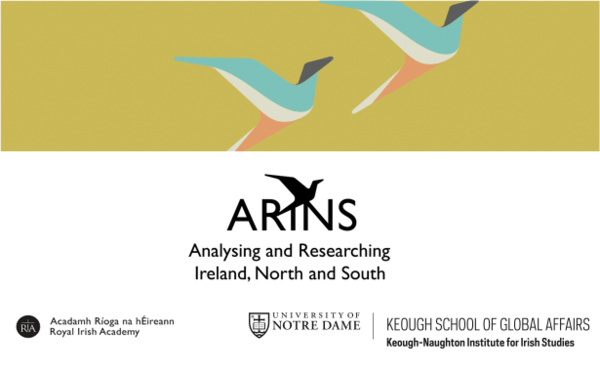
This event takes place at 9:00 a.m.-2:00 p.m. EST.
Join the Royal Irish Academy and the ARINS: Analysing and Researching Ireland, North and South project for a captivating in-person event marking German Unity Day co-hosted by the German Embassy in Dublin, ARINS and Maynooth University. This conference marks German Unity Day which commemorates the unification of the Federal Republic of Germany and the German Democratic Republic into a single federal Germany 1990.
The ARINS project is an initiative jointly developed and administered by the Royal Irish Academy and the Keough-Naughton Institute for Irish Studies.
This is a free in-person event with lunch, booking essential.
Overall themes to be explored:
- What can we learn from the east-German experience in the process of transformation?
- What learnings can be shared from Germany to Ireland and from Ireland to Germany?
- The practical politics of transition: What are the (institutional, legal, and legislative) challenges involved in uniting two jurisdictions?
- In particular, what are the challenges for local government in transformation processes? How do polities prepare for transition and ponder transformation? How can conflict be avoided? How might we address the challenges of constituencies and citizens disaffected by developments and avoid winner and loser mentalities?
- How does society address the historical experience of violence and injustice?
- How can we navigate the legacies of division to promote inclusion (community cohesion)? What are the practical challenges when creating engagement? (How) can we prevent commemoration becoming a ritual?
- Is there room for counter-histories?
- With extremist parties on the rise, to what extent did the German reunification process have an impact on the polarisation of society?
- Can we witness similar developments in (Northern) Ireland? (How) can polarisation of society be countered/avoided?
For more background on these themes, listen to our #ARINScast on Irish Unity Lessons from Germany or read Professor Tobias Lock on Irish Unity: Lessons from Germany.
Programme
9:30-10:00: Tea/Coffee
10:00-10:30: Welcome
- Ambassador Cord Meier-Klodt
- Introduction: Prof Mary Daly, MRIA
10.30-11.30: Panel 1: Politics
The practical politics of transition: What are the (institutional, legal, and legislative) challenges involved in uniting two jurisdictions? In particular, what are the challenges for local government in transformation processes? How do polities prepare for transition and ponder transformation? How can conflict be avoided? How might we address the challenges of constituencies and citizens disaffected by developments and avoid winner and loser mentalities?
11:30-12:00: Coffee and tea break
12:00-13:00: Panel 2: Legacies, histories and polarisation
How does society address the historical experience of violence and injustice? How can we navigate the legacies of division to promote inclusion (community cohesion)? What are the practical challenges when creating engagement? (How) can we prevent commemoration becoming a ritual? Is there room for counter-histories? With extremist parties on the rise, to what extent did the German reunification process have an impact on the polarisation of society? Can we witness similar developments in (Northern) Ireland? (How) can polarisation of society be countered/avoided?
13:00 Lunch